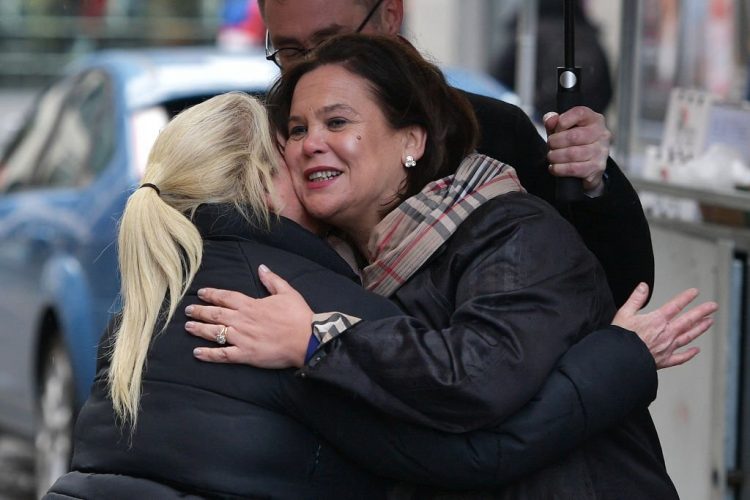The Irish nationalist party Sinn Fein recently secured a significant victory in Northern Ireland’s local elections, as reported by local media outlets. In what has been widely viewed as a historic moment, Sinn Fein emerged as the largest party for the first time, securing 144 out of 462 local government seats. Their success represents a considerable gain of 39 seats compared to the previous provincial government elections in 2019. Sinn Fein has long advocated for the unification of Northern Ireland with the Republic of Ireland, a position that has often been controversial and divisive. Despite this, their message resonated with voters in these elections, reflecting a growing appetite for change, particularly among younger generations. The party’s primary rival, the Democratic Unionist Party (DUP), finished second with 122 seats, while the centrist Alliance Party secured 67. These results highlight the increasingly polarised political landscape in Northern Ireland, with Sinn Fein and the DUP representing opposite ends of the political spectrum. How this election outcome will impact broader political developments in Northern Ireland remains to be seen. However, it is clear that Sinn Fein’s gains mark a significant shift in the region’s political landscape and suggest that the question of Irish unity will remain firmly on the agenda for the foreseeable future.
A significant victory for Sinn Fein
The recent election results in Northern Ireland have been described as “momentous” by Michelle O’Neill, the Vice President of Sinn Fein. O’Neill emphasised that her party’s success indicates to voters that the power-sharing government in Northern Ireland, which has been inactive for over a year, must continue functioning and addressing the pressing issues confronting the region. Following the local elections, Sinn Féin emerged as the largest party in local government, and O’Neill, who is set to become the party’s first minister, stated that “historical change is happening, and Sinn Féin is leading that change right across Ireland.” Sinn Féin, which supports Irish unity, secured just under 31% of the first preference votes for the region’s councils, an increase of 7.7% compared to the 2019 local elections and higher than the 29% share of first preferences it received in last year’s assembly elections. Meanwhile, the Democratic Unionist Party, the region’s largest party in favour of keeping Northern Ireland in the UK, received 23.3% of the first preferences, a decrease of 0.8% from 2019 but higher than its 21.3% showing last year.
A significant loss for unionists
Several smaller nationalist and unionist parties experienced significant losses in the Northern Ireland elections. In contrast, the centrist Alliance Party, which came third in last year’s assembly elections, was poised to secure the third-highest number of councillors. Michelle O’Neill has called on London and Dublin, as co-guarantors of the Good Friday Agreement that ended Northern Ireland’s decades-long conflicts in 1998, to support an end to the Democratic Unionist Party’s boycott of the power-sharing executive and assembly at Stormont. In February, the UK and the European Union reached a deal to resolve the political crisis. The Windsor Framework aims to reduce customs checks and other barriers for goods moving from the rest of the UK to Northern Ireland. The agreement also includes the “Stormont Brake,” which allows Northern Ireland politicians to challenge new EU trade rules, a key request of unionists. However, the DUP rejected the deal and refused to participate in the power-sharing government. Sinn Fein achieved a historic victory in May 2022 by winning the most seats in Northern Ireland’s assembly, unseating the DUP, which had controlled the legislature for two decades.
This victory could run other programs.
Sinn Fein’s Vice President, Michelle O’Neill, calls on the British and Irish governments to propose a plan to restore the Stormont power-sharing institutions after her party secured a historic victory in local elections. Ms O’Neill, who leads Sinn Fein in Stormont, has stated that there is no justification for the Democratic Unionist Party (DUP) to remain absent from government now that negotiations over the Northern Irish protocol have concluded.
Sinn Fein knows what people want and takes action for it.
Sinn Fein has traditionally focused on domestic issues such as housing and healthcare, avoiding overt calls for Irish unification. However, recent headlines in nationalist publications have requested the British government clarify the conditions for conducting a poll on Irish reunification. Under the Good Friday Agreement, a referendum must be called if there is clear evidence of support for leaving the United Kingdom and becoming part of a united Ireland, but there is no straightforward process for determining this. Currently, Sinn Fein is leveraging its momentum, with Northern Ireland leader Michelle O’Neill even receiving an invitation from Buckingham Palace to attend King Charles III’s coronation. Meanwhile, unionists are stuck in a difficult position, opposing the status quo without offering viable alternatives. Experts predict they will continue to lose support if they remain opposed to the government but fear that conceding ground may allow more hard-line unionist parties.
Local council elections are an opportunity to endorse positive leadership.
A positive campaign led by deputy leader Michelle O’Neill and built around a “working for all” message was confirmed to be a successful formula. The problem for Sinn Féin is that the party achieved its best result with a campaign that avoided mentioning its primary goal of achieving a united Ireland. The enduring challenge of securing and persuading voters about Irish unity remains significant, especially in the event of Stormont’s restoration and the establishment of more durable power-sharing arrangements. Alliance, as expected, became the third-largest party, mirroring their peak in last year’s Stormont Assembly election. Sinn Féin President Mary Lou McDonald has told the local council elections are an opportunity to endorse positive leadership and local councillors who will work for all. At the launch of the party’s manifesto for the local council elections in Northern Ireland 2023, Mary Lou McDonald said: “This is a time for hope, positivity and optimism. Real change is happening before our eyes. A generation is moving forward to build a new and better future for all. A new Ireland, a United Ireland, delivers for every person, family, and community”.
Sinn Féin’s manifesto about the election mentioned that “the party going to this election with a pledge to work for all. To elect local councillors across the north who will concentrate on supporting communities and making our cities, towns, villages and rural communities better places to live. That points to breaking down barriers between communities, securing investment and regeneration, developing more community facilities, investing in recreational facilities, green spaces and better transport infrastructure. It means securing our communities support people at all steps of life, including ensuring they are an excellent place to raise children and a good place to grow old. It means guaranteeing that local government contributes to delivering a more satisfactory quality of life.
Changes that the election reflect
The recent election results highlight a significant shift taking place in Northern Ireland. The 2022 census revealed that Catholics now outnumber Protestants for the first time, while younger generations are more likely to identify as Irish or Northern Irish rather than British. This demographic transformation presents a long-term challenge for unionism, which must broaden its appeal and connect with younger voters to maintain relevance. Despite calls for reform and outreach to nationalists before the Brexit vote, little progress has been made. The Democratic Unionist Party’s current boycott of the assembly in opposition to the Northern Ireland protocol further alienates nationalists and the growing middle ground, making reform even more urgent.
The fatal mistake of DUP
Many nationalist voters suspect that the DUP‘s boycott of the assembly is rooted in their unwillingness to accept Michelle O’Neill as first minister. They argue that unionists cannot tolerate being in a “second place” position and that old prejudices still exist. The DUP had previously indicated that they would be satisfied with the deputy first minister post following last year’s assembly election, but this has yet to materialise, leaving few nationalists convinced that it ever will. In response, voters are expressing their frustration at the situation.





























